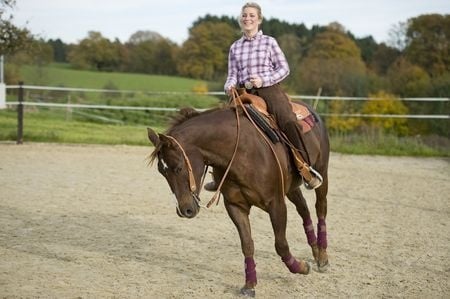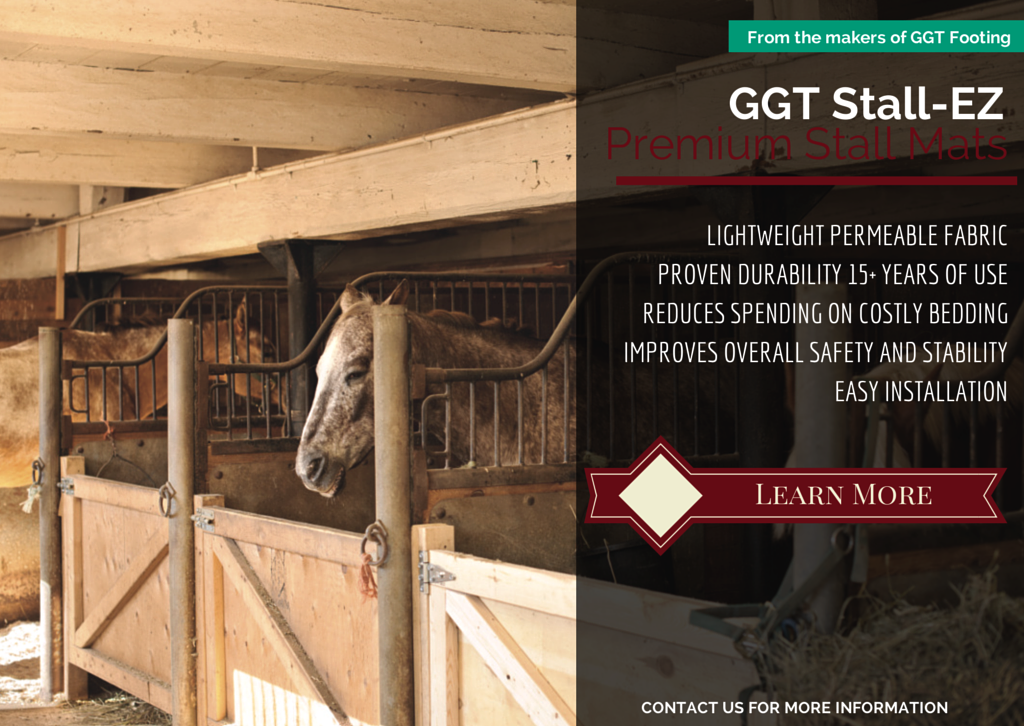When feeding any animal, the most important thing is to feed the correct amount of calories in order to keep the animal at a healthy weight. Animals that are too heavy develop health problems, and so do animals that are too thin. Very few individuals have a scale big enough to walk a horse onto, so most horse owners resort to other methods to estimate the horse's weight. A tape passed around the girth can be used to estimate a horse's weight. Tapes marked with estimated horse's weight are sold at most tack stores.
A mature horse in light work is expected to need to eat 1.0 to 2.0% of its body weight in forage each day. Forage should make up the bulk of any horse's diet. Forage is grass or hay. It's best to weigh the horse's food each day, but obviously this is impossible if the horse is turned out to seek its own forage in a field.
Whether the horse is turned out or fed a weighed amount of daily forage, horses should be checked regularly to see if they are gaining or losing weight. At least once a week the horse's body condition should be observed. The ribs should be easy to feel but not easy to see. If the horse is losing or gaining weight, the amount of food needs to be adjusted. If the horse is out in a small field, the forage supply in the field will be rapidly consumed and then the horse will need to either be moved to a different field or will have to be supplied with hay.

Horses in work may need to be fed concentrates in addition to forage in order to keep from losing weight. Concentrates are usually some form of grain. A horse in heavy work may need up to 2% of its body weight in concentrates each day, in addition to 2% of its body weight in forage. Concentrates should never be substituted for forage. Concentrates should only be added to the horse's diet if the horse cannot maintain a healthy weight on forage alone. The feed store usually has a good supply of special concentrated feeds developed for horses.
Like forage, concentrates should be weighed, not measured by volume. Many feed rooms lack a scale, however, and rely on volume measurements. The feed should be weighed at least once to be sure of how much is being fed. A one-pound coffee can full of grain may contain far more than one pound of grain.
Grains can have adverse effects on horses. A horse who is fed large volumes of grain may experience behavioral changes (get "hot") and may be at risk of laminitis, colic, tying up or other health problems. One strategy to avoid feeding a horse a lot of grain is to feed fats instead of grain. Fats provide calories in a safe form. Various vegetable oils can be added to feed, or special high-fat horse feeds can be purchased. One cup of oil can be substituted for around 1.5 pounds of grain.
A problem that arises surprisingly often in today's horses is that they get too fat on nothing but forage. A mature horse that isn't working hard can easily get overweight when grazing in a field of rich grass. In this situation, the horse can either be moved to a field with poor forage, moved to a dry lot with no forage at all and fed weighed amounts of hay, or can have a grazing muzzle put on to restrict the amount of grass eaten.
Mature horses need very little protein. They do, however, need certain trace minerals and a few vitamins that may not be supplied by the forage, particularly if dry hay is being fed. Horses eating fresh pasture rarely need anything other than access to a salt-mineral block. For hay-fed horses, special "ration balancers" that supply the necessary nutrients are available for sale. Most concentrated feeds for horses are supplemented with the necessary vitamins and minerals, so horses working hard enough to be fed concentrates will receive these in their grain ration.
We specialize in building arenas for horses, both indoor and outdoor arenas. We are an official supplier of GGT footing. If your arena needs some help or you've decided to construct a nice arena, don't hesitate to contact us for a quote.


